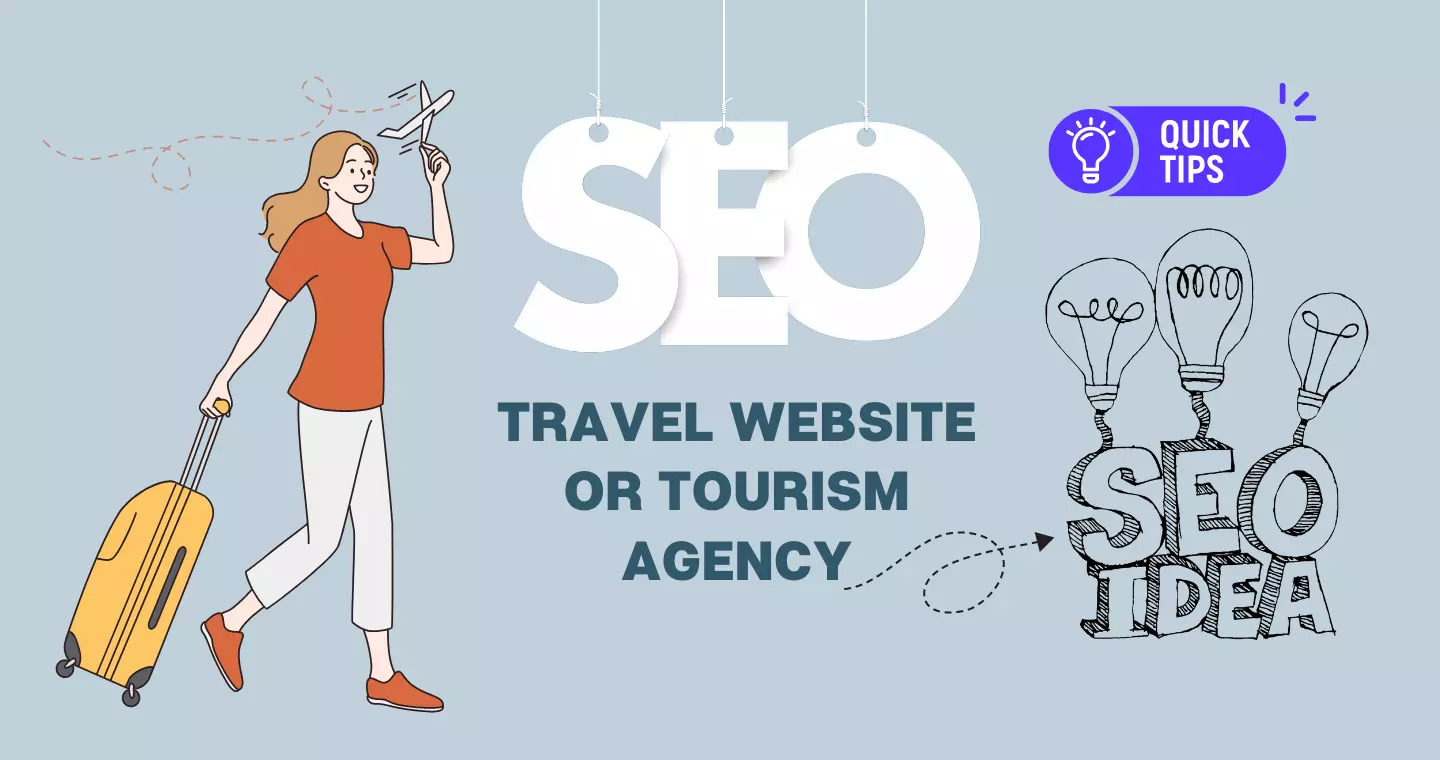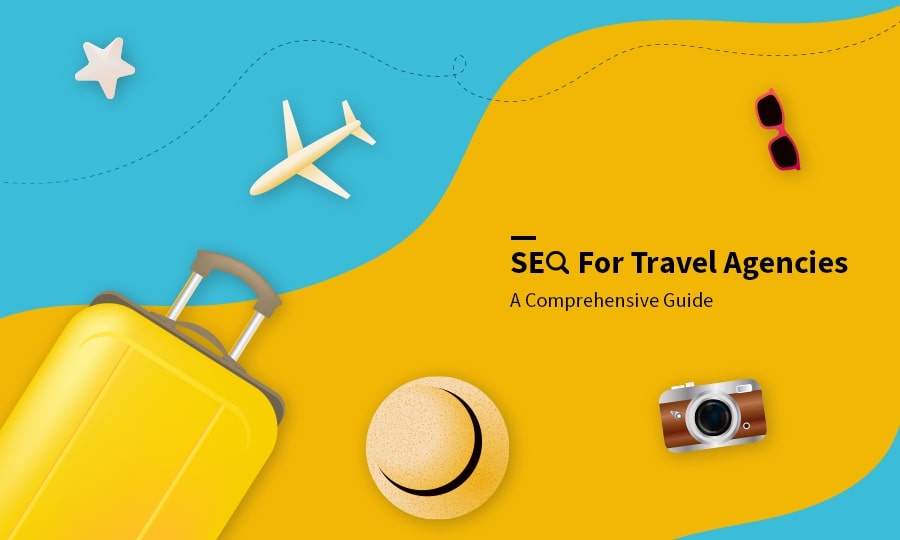
Why Technical SEO is Important for Travel Websites
Search engine optimization is really important in digital marketing for traffic and website visibility. For vacation websites, however, it is not only an issue of the appropriate keywords but also of technical site
optimization to ensure flawless operation and Google ranking.
First in importance is technical SEO.
The basis of any other SEO effort is technical SEO. It addresses the backend elements of a website influencing search engine results, user experience, and performance. Given the very competitive nature of the industry and the dynamic content they offer, travel websites notably rely on technical SEO.
We will discuss in this blog post why technical SEO is so important for travel websites and how it may help them display better on SERPs.
Technical SEO is the application of methods aimed at maximizing the technical components of a website to improve its user experience and ranking performance. While technical SEO considers the elements of a website's site speed, how it is mobile-friendly, and safe, and even its architecture, conventional SEO solely stresses content and backlinks. A website must be crawled, indexed, and ranked effectively by a search engine depending on all these technological elements.
Travel websites especially those with plenty of dynamic content—such as hotel listings, flight itineraries, packages, and more—should pay great attention to technical SEO. A well-optimized technical layout guarantees that search engines may grasp and rank the site's pages as well as that visitors may move throughout it with ease.
Why do travel websites need technical SEO?
Boosts Site Performance and Speed
Time in the travel business is money. Travel websites will be searched by users seeking fast loading and a flawless experience. Research shows that sluggish sites might produce lower conversion rates and greater bounce rates. Google has really included site speed as a ranking criterion, hence slower sites will probably show lower on search results.
By means of image optimization, minimum code, and application of several caching techniques, technical SEO improves the page load time. For travel websites, which call for high-quality image files and plenty of multimedia material, this is especially important.
Faster loads will improve the user experience:
Travel websites have to be more mobile than they have ever been. According to Google, alone on mobile devices, approximately 60% of all travel-related searches are conducted. This would mean that you would be losing a good portion of possible clients if your travel website is not mobile-friendly.
Technical SEO guarantees that your website is mobile device compatible and responds as it should. Mobile optimization guarantees correct frameworks are applied, pages load quickly on smaller screens, and interactive components (like buttons and forms) are easily used on a mobile device.
Improves Indexing and Crawlability
Bots let search engines like Google crawl and index websites. If these bots are to crawl your vacation website successfully, it must be internally connected and organized. Technical SEO ensures that search engine crawlers can grab the data fast and reach every page.
Optimizing internal link structure
Travel websites with multiple pages—those include hotels, places, or itineraries—must maximize the internal linking structure and provide the assurance that no major page is blocked by robots.txt. Google can effectively crawl your website and index your pages based on a suitably structured site structure, thus affecting the ranks.
Incorrect links and redirects are fixed.
Broken links and error redirection could compromise the user experience as well as the SEO results. Should users come across a broken page, they could quit your site right away, so affecting your bounce rate. Google can also punish your website should it discover broken links or too many redirects on individual pages.
Applying technical SEO can help you discover broken links, set up appropriate redirects (301), and ensure users find the correct pages. This maintains a flawless user interface and allows search engines to efficiently tour your website.
Enhances the user experience.
One of Google's most important ranking criteria is user experience. Websites with poor user experience sometimes produce worse search results since they provide users little value. Travel websites, which may have complicated navigation and plenty of data, have to concentrate on giving a simple and user-friendly interface.
Technical SEO enhances features like navigation; page loading and requiring a shorter time; and preventing broken elements that would frustrate the user, therefore complementing UX. Users will spend more time on your website and finally book or inquire after they have an easy and pleasant experience.
Supported Structured Data Markup
Schema markup, sometimes referred to as structured data markup, is HTML code that lets you enhance your website content even more so that search engines may grasp and interpret more of it. Travel websites displaying rich snippets including elements like price, user ratings, stars, and lodging availability gain much from schemas.
If a user is seeking hotel rooms in a specific city, Google can offer rich snippets like rates, reviews, and availability straight into the search results. This therefore helps search results for travel websites stand out and raises click rates, thus improving conversions.
Provides Useful Security Accessing HTTPS
Although security should be present on any website, it is especially important for travel websites since they handle private information about their users, including payment details and personal data. Making sure your website runs HTTPS (Hypertext Transfer Protocol Secure) is fundamental in technical SEO.
Apart from security purposes, HTTPS serves as a ranking indicator for Google. HTTPS guarantees a website's security and dependability more than one without. A user of a travel website will enter personal information, hence SSL certificates and encryption are very necessary.
How could travel websites' technical search engine optimization be improved?
Perform a site audit.
Starting the process to improve the technical SEO for your travel website is finishing a thorough site assessment. This audit will highlight areas where you should focus: poor loading times, broken links, and missing meta tags. Use Google Search Console, SEMrush, and Ahrefs to have a thorough investigation of the performance of your website.
Streamline Site Speed
Boost your site's speed for SEO as well as for user experience. Images can be compressed, a content delivery network (CDN) can be used, and JavaScript and CSS files can be minimized. Google's PageSpeed Insights tool could point to particular areas needing work.
Make the website smartphone-friendly.
Check whether your travel website is mobile-friendly. The Google Mobile-Friendly Test tool will let you see just how mobile-friendly your website is. Make sure the images on the tablets and cell phones are adequately scaled, pages are responsive, and interactive components on such a device can be handled simply.
Repair damaged links and reroute.
Search for broken links often, then arrange appropriate redirects for any moved or deleted pages. Using tools like Screaming Frog, you may crawl your site looking for these problems and straight immediately remedy them.
Utilize Structured Data
Add structured data markup to your website to enable rich snippet display in search results. Google's Structured Data Markup Helper allows you to apply the relevant schema for your trip materials—that which encompasses hotel listings, transport information, and local attractions.
Conclusion
A good SEO plan for travel websites largely depends on technical SEO. It assures quick, mobile-friendly, safe, easy search engine crawled and indexed on your website. Improving the technical features of a website can boost user experience and visibility in the search results as well as drive more traffic to your page.
Technical SEO is now required in a crowded digital environment if you wish your travel website to remain competitive rather than optional.
Search engine optimization is really important in digital marketing for traffic and website visibility. For vacation websites, however, it is not only an issue of the appropriate keywords but also of technical site optimization to ensure flawless operation and Google ranking.

 Start your Travel Business with Our 7 Day Free Trial Website!
Start your Travel Business with Our 7 Day Free Trial Website!





